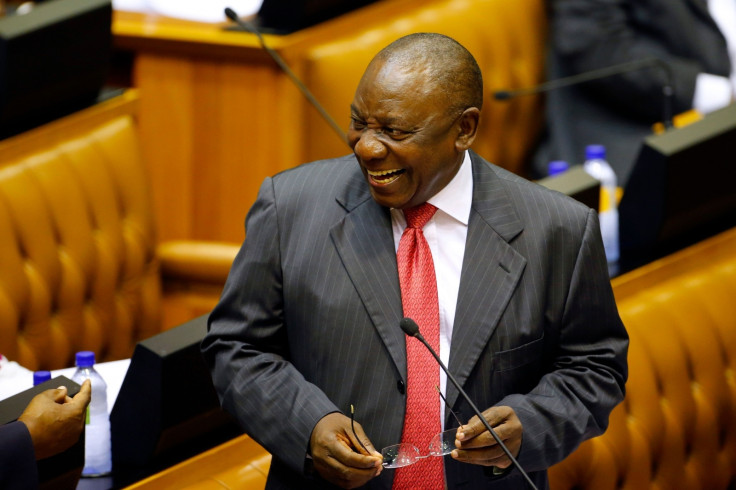Has South Africa's Ramaphosa begun to cement his rule with sweeping cabinet reshuffle?
As many as 30 ministerial changes were announced by South Africa's new president, Cyril Ramaphosa.
It has been 11 days since South Africa's Cyril Ramaphosa took over as president and he has begun to stamp his mark beginning with a sweeping cabinet reshuffle. Significant of the political rearranging is the fact that he brought back Nhlanhla Nene as finance minister two years after he was sacked by ousted former president Jacob Zuma.
As many as 30 ministerial changes were announced by Ramaphosa, 65, a former businessman, on Monday, 26 February, as he rode to power with a promise of "new dawn" for the country. All the newcomers will be sworn in on Tuesday, 27 February.
Zuma was forced to quit after years of corruption scandals amid mounting pressure from his own party, African National Congress (ANC) Party. Ramaphosa was elected as the new president on 15 February ending months of political turmoil.
As Ramaphosa was announcing the cabinet changes late on Monday, 26 February, he said in a televised address: "In making these changes, I have been conscious of the need to balance continuity and stability with the need for renewal, economic recovery and accelerated transformation."
Several of Zuma's allies were either removed from their ministerial positions or demoted in the reshuffle though he kept many other ministerial appointments intact. Zuma's ex-wife Nkosazana Dlamini-Zuma was appointed a minister to the presidency.
"As the ANC, we particularly commend the president for having exercised this prerogative in consultation with the national officials of the ANC and our alliance partners," said the ruling party spokesman Pule Mabe after the announcement of the reshuffle.
"Undoubtedly, this act of giving due regard to the resolutions of the African National Congress, in the exercise of the prerogative bestowed upon the president, lays a strong foundation for greater alignment and cooperation between the ANC and its cadres deployed in government."
However, this move has been criticised by the opposition parties for bringing in allegedly corrupt members. "Tonight we saw the fatal compromise Cyril Ramaphosa made at Nasrec exposed for all to see, as David Mabuza will be sworn in as the deputy president of South Africa," said the opposition leader Mmusi Maimane.
"Ramaphosa's decision to side with scandal-ridden Mabuza undermines the integrity of his stated commitment to fight corruption and rebuild from the tatters of the Zuma decade." Along with Zuma, Mabuza was also accused of involving in corruption scandals but he had rejected all the allegations.























